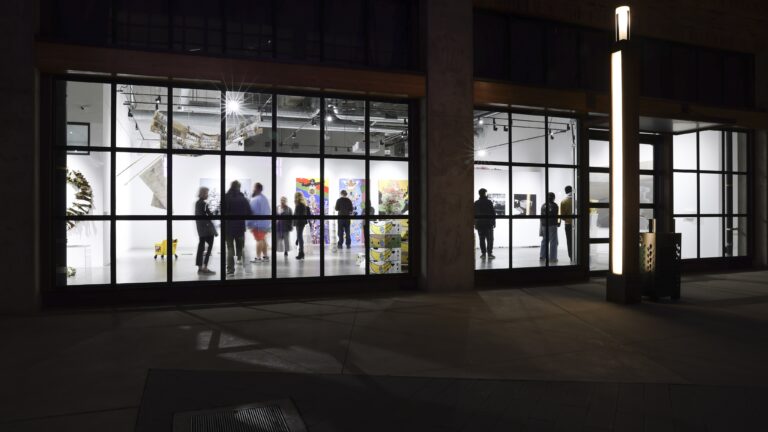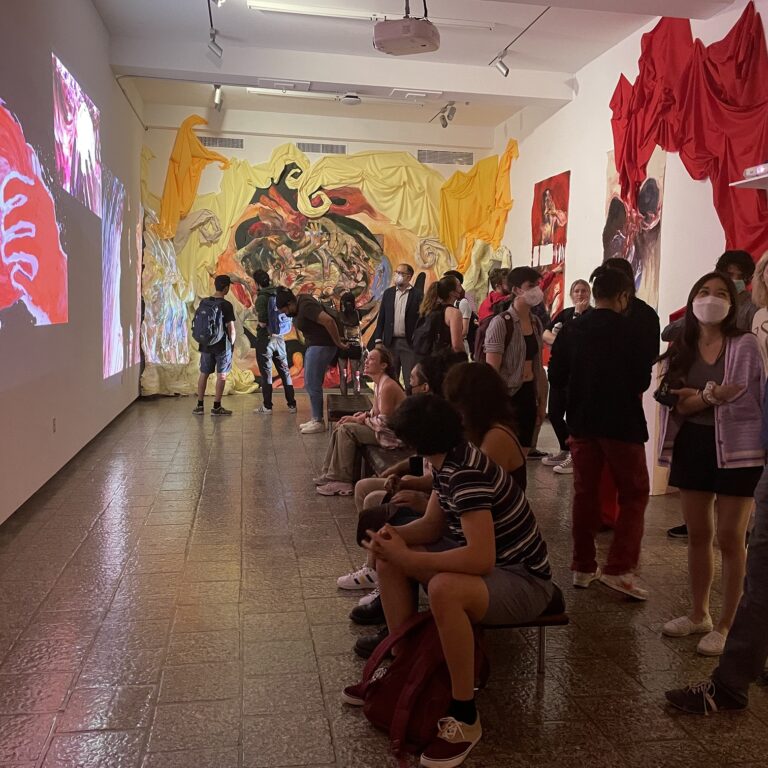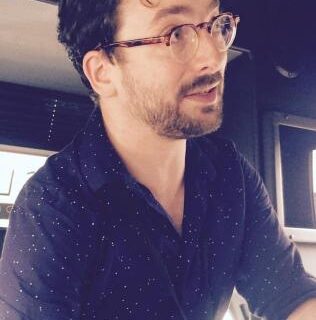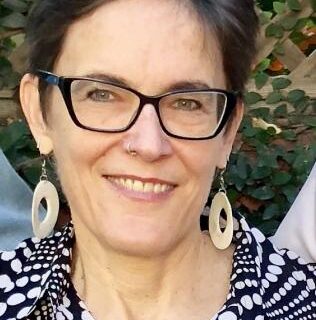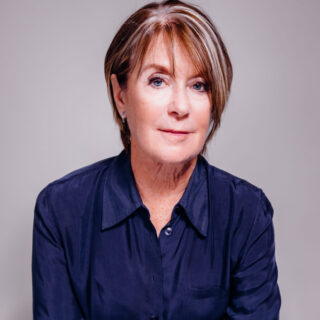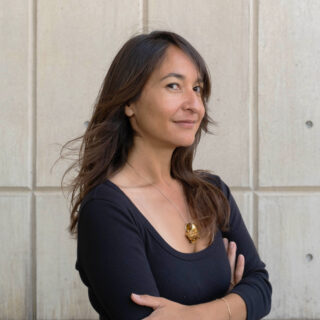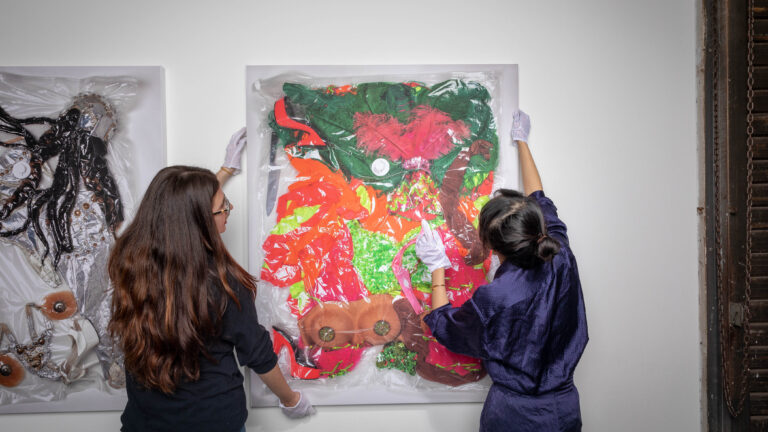
MA Curatorial Practices Program
Application Deadline
The fall 2024 application deadline for the MA Curatorial Practices degree program is Monday, January 15, 2024.
The Roski MA Curatorial Practices and the Public Sphere
Roski’s Masters in Curatorial Practices and the Public Sphere is a two year full-time intensive program in the practice and history of curating. You’ll gain context through the lenses of critical theory, art history and visual culture, exploring curatorial practice modes through a combination of seminars and professional training.
Roski and the Price School of Public Policy also offer a dual Master’s degree program, Master of Urban Planning / Master of Art and Curatorial Practices in the Public Sphere. Read more
The MA Curatorial Practices Experience
In Roski’s MA Curatorial Practices and the Public Sphere program, you’ll aim for a high level of understanding of the history and theory of curatorial practices, while looking for answers to questions about how curating activates art in relation to a range of publics.
At USC Roski, you’ll work closely with an internationally acclaimed faculty and an expanded community of leading professional artists, critics and curators who participate in the weekly Visiting Artist and Scholar Seminar and the Resident Artists and Scholars Program. Seminars and Roski Talks, our graduate lecture series, address theories and histories of art and performance, and focus on theories of social practice, the public sphere, what constitutes art’s publics, and how curatorial practice can address and engage audiences.
Why Roski?
As an MA candidate in Roski’s graduate program, you can take advantage of the resources of a leading research university with access to courses at the University’s 22 other schools and academic units, and the huge range of arts events across Los Angeles and Southern California.
-
The school’s Curatorial Practices program has prepared MA alumni to work in museums and galleries nationwide. Among them:
- Whitney Museum, NYC
- Aspen Art Museum
- California African American Museum
- Getty Research Institute
- Hauser & Wirth, LA
- Los Angeles County Museum of Art (LACMA)
- Los Angeles Contemporary Exhibitions (LACE)
- Rhizome, NY; the Underground Museum
-
The Critical Studies faculty has developed a curriculum that provides an in-depth background in histories and theories of contemporary curatorial practices, including exhibitions, performance, film and media arts.
-
A three-course Practicum sequence gives you extensive experience in devising a final curatorial project. You’ll work either individually or collaboratively to conceptualize and curate your project during the first two semesters, then mount the project, either in the MFA gallery or in an alternative venue (actual or virtual).
In your final semester, you will produce a catalog, website, or other cultural interface to introduce your curatorial project to the public. You’ll also take classes that give you direct practical experience in building and realizing art exhibitions, including performance art programming and other hybrid modes of curating.
-
The Roski Talks series and Art and Curatorial Visits, a field-trip course, introduce you to curators, artists and scholars working at art institutions and studios across Los Angeles.
MA candidates also make local contacts during a required field internship, working in a curatorial environment for course credit.
-
As an MA Curatorial Practice candidate, you’ll meet exclusively in the Philion Round Table conference room, a well-appointed meeting space for team projects. You’ll also work closely with art, design and other USC faculty across the university.
Your Thesis Exhibition
The curatorial project is developed through the curatorial practicum course series, a three-term laboratory of studying the history of curating, and of exhibition making and arts programming emphasizing the presentation of work in a final exhibition or program and the creation of an interface with the public. In the practicum series, students work either individually or collaboratively to conceptualize, research, and organize a curatorial project presented in the Graduate Gallery in the Los Angeles Arts District. As a culmination of this project, they then produce a catalogue, website, or other cultural interface between the curatorial projects and the public.
See Past MA Exhibitions
Your Thesis Paper
As a capstone to your degree, you’ll research and write a thesis paper. You produce your thesis with close guidance from faculty (a supervisor and two additional collaborators). To write your thesis, you’ll compile original research on topics that relate to or are complementary to your curatorial concept. You will conceive, install and present your curatorial project individually or as a group/cohort exhibition.
Your Roski MA Faculty
USC Roski’s internationally acclaimed faculty, plus artists, scholars, critics and curators lead courses at the school and serve as your teachers, advisors and mentors
Artists in Conversation
USC Roski’s Visiting Artist and Scholar Seminar, known as Roski Talks, features in-depth public presentations by prominent artists, designers, writers and curators throughout the academic year. Presentations typically include a group discussion allowing students, faculty and the public to raise questions, pose problems or offer ideas. As a first-year MA student, you’ll also attend closed-session seminars, engaging in intensive dialogue with visitors.
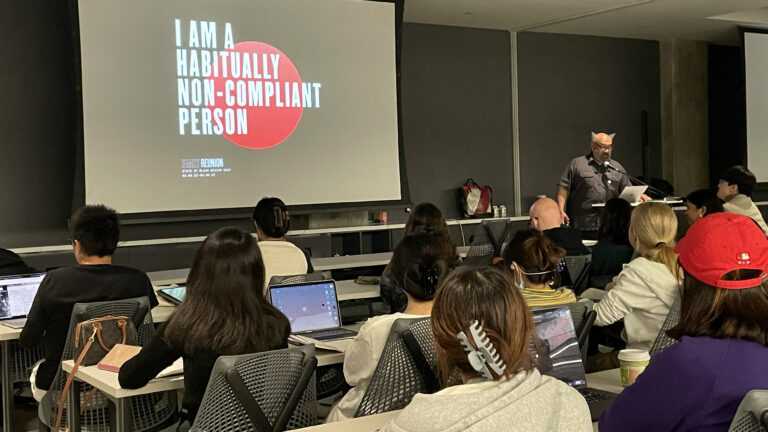
Opportunities
As an MA candidate at Roski, you’ll enjoy advantages including opportunities to apply for a travel scholarship or a graduate teaching assistantship.
